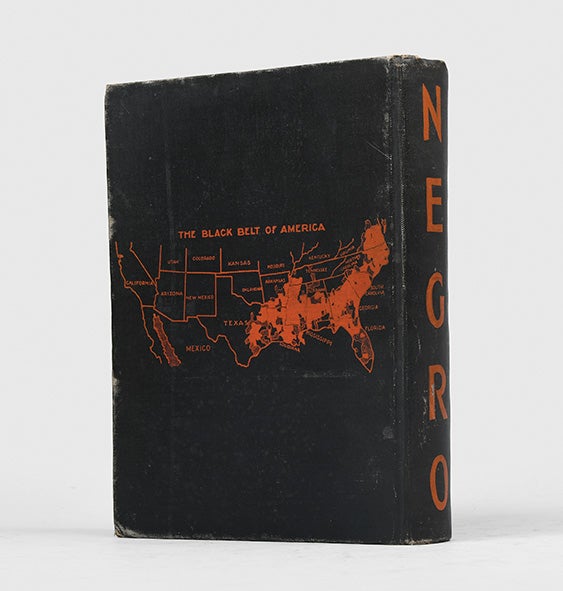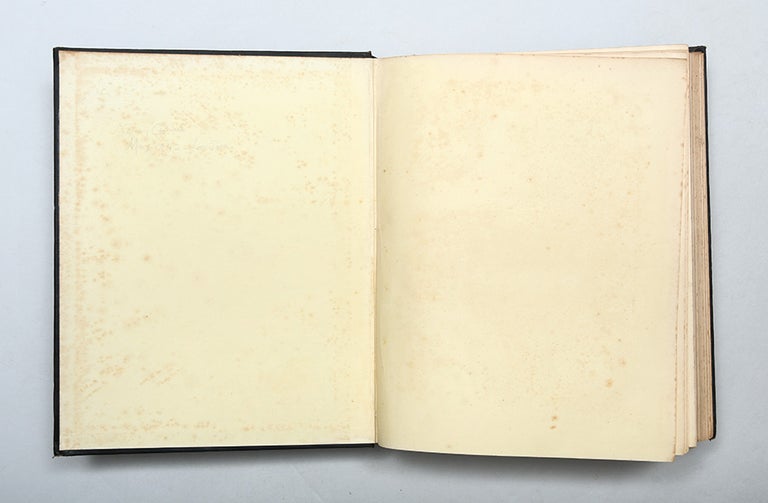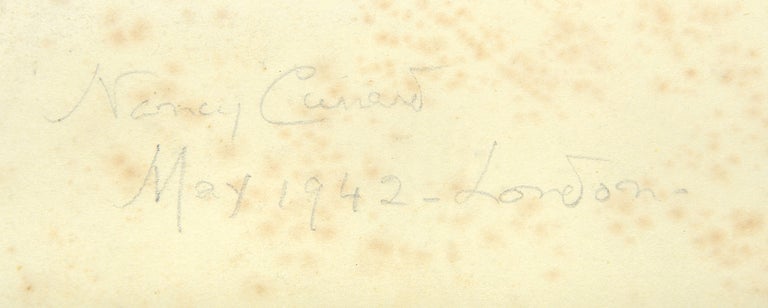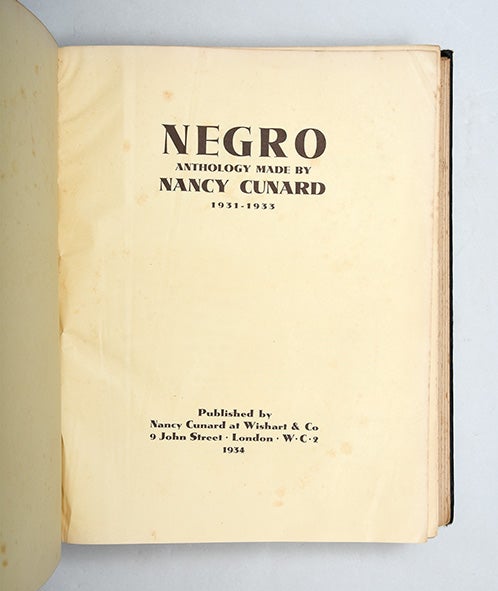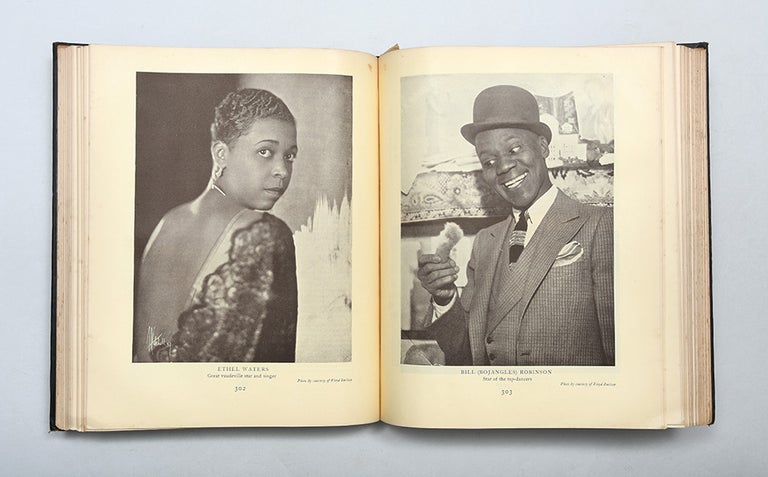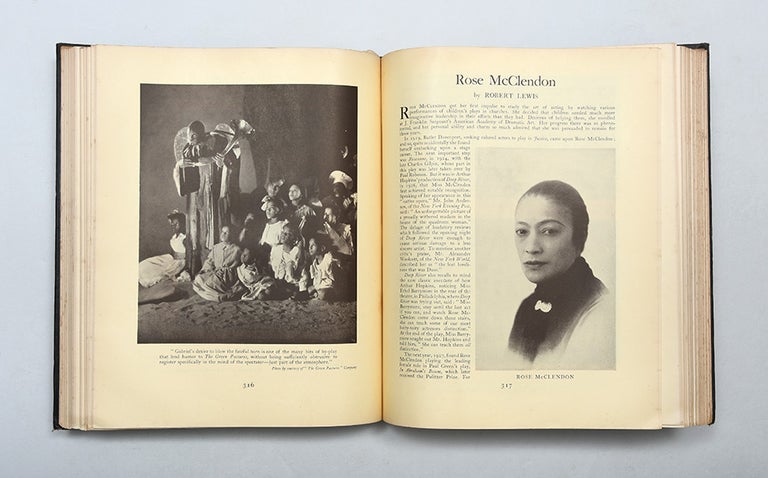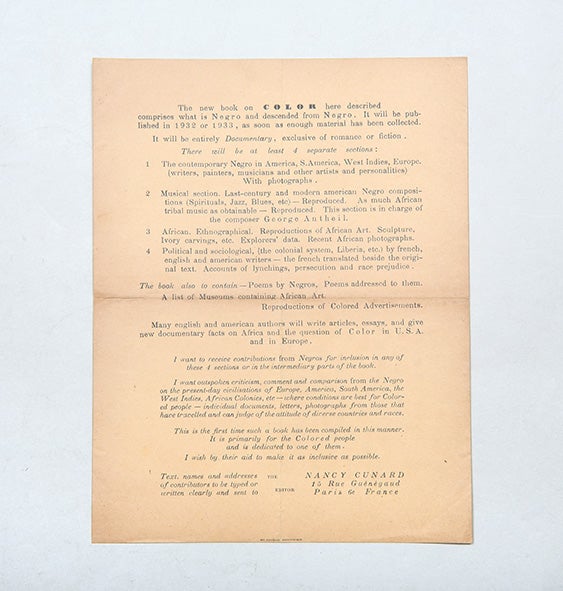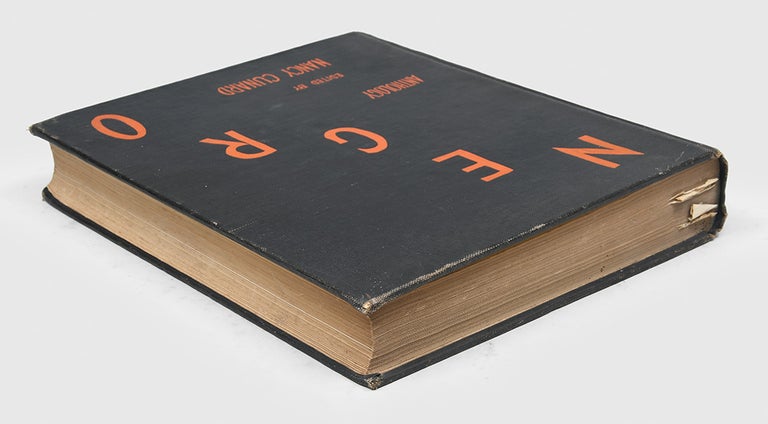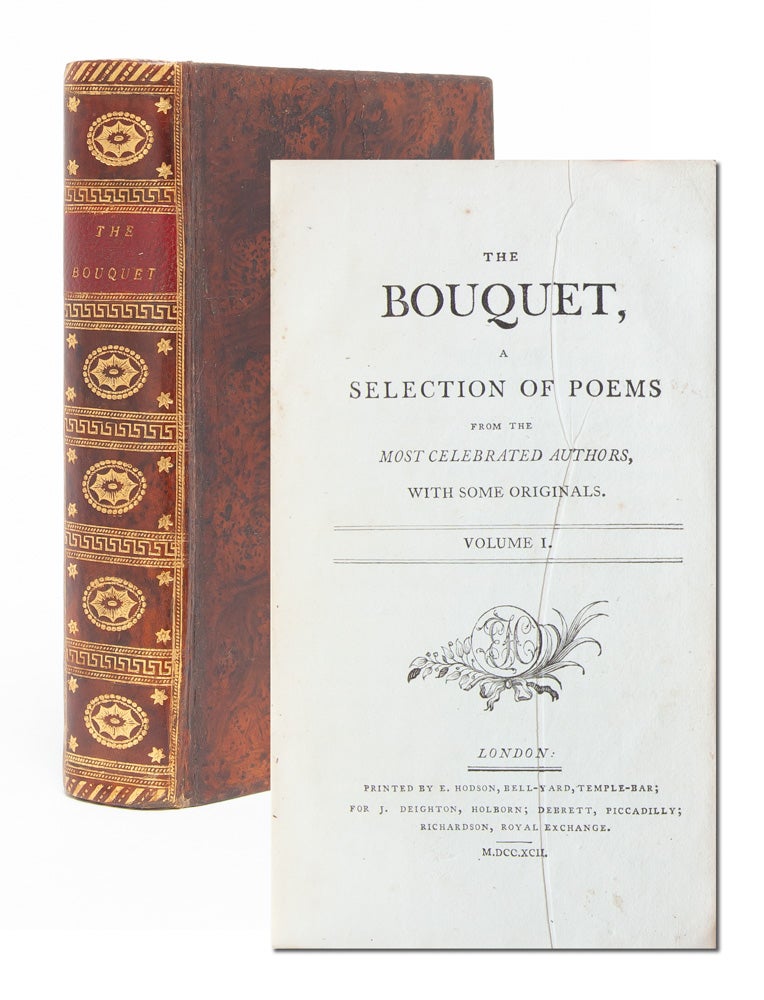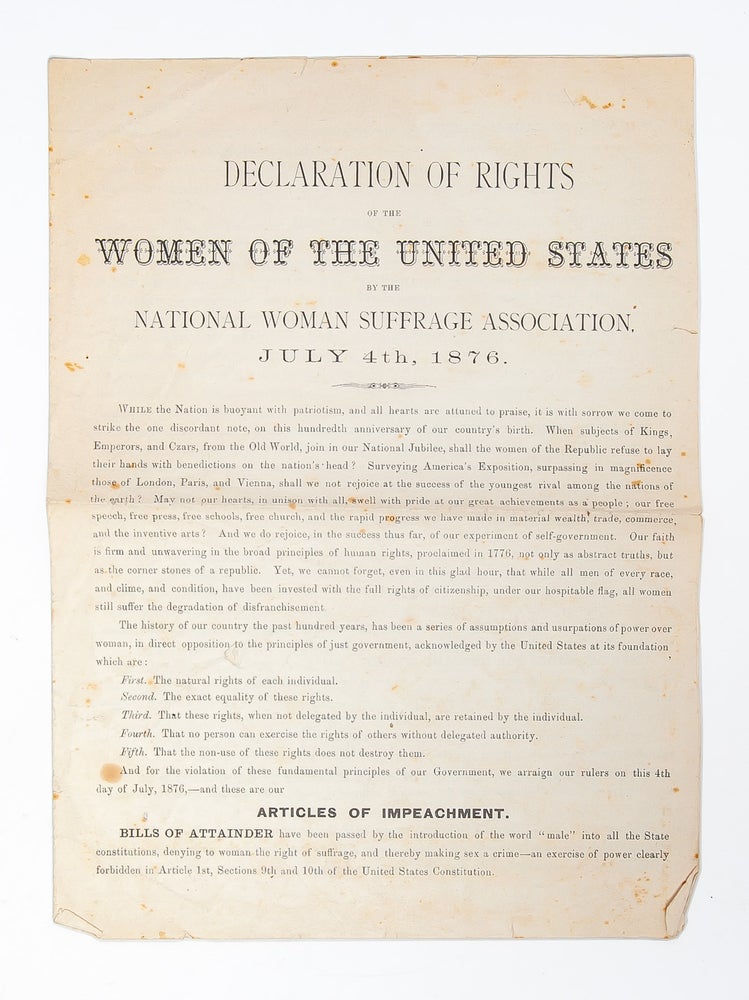Negro (First Edition Signed)
London: Nancy Cunard at Wishart & Co, 1934.
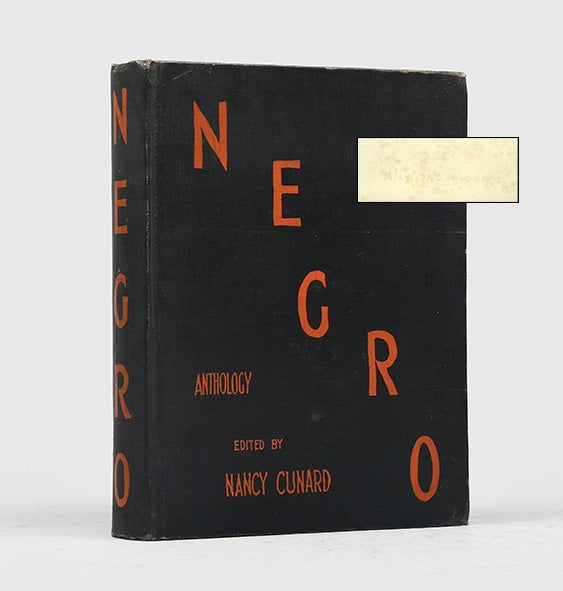

Negro (First Edition Signed)
London: Nancy Cunard at Wishart & Co, 1934. First edition. Second issue binding. Original black cloth, titles to spine and front board in red, map of the Black Belt of America on rear cover. Illustrations throughout. Spine ends and extremities a little rubbed, occasional faint spot of foxing to contents but overall quite clean, an unusually nice copy. Inscribed by the editor on the front pastedown, “Nancy Cunard, May 1942 – London.” Rarely found signed: 1,000 copies of the work were printed, but a large number of unsold copies were destroyed in a warehouse fire during the Blitz. Accompanying this copy is Cunard’s prospectus, advertising the forthcoming publication of the Anthology and requesting contributions.
“A strongly outspoken anti-Fascist, Cunard wanted to work with the French resistance, but was by chance in England at the time of the Nazi invasion. From London she began work for the Free French, serving as journalist and translator” (Benstock). Cunard’s weighty anti-imperialist work “is considered a major contribution to the intellectual and cultural history of 20th century African diasporic history.” The 150 contributors to Cunard’s poetic-political work included luminaries Louis Armstrong, Samuel Beckett, Norman Douglas, Theodore Dreiser, W. E. B. DuBois, Langston Hughes, Zora Neale Hurston, Ezra Pound, and William Carlos Williams. This copy includes the censored essay by Rene Crevel on unnumbered pages at 581–583: “It is clear from her FBI file that spies in London reported to the United States on the preparation and publication of the Negro Anthology. The censors intervened and insisted that Rene Crevel’s The Negress in the Brothel, translated by Samuel Beckett, be removed. Undaunted, Cunard had the three pages set secretly by the radical Utopia Press and tipped them in while binding the volumes herself. The essay is not listed in the table of contents but is actually in the printed book—a reminder of her radical resourcefulness” (Marcus).
“Negro is a staggering accomplishment—in purpose, breadth of information, and size. Almost 8 pounds, 855 pages (12 inches by 10 inches), with 200 entries by 150 contributors (the majority, black) and nearly 400 illustrations, it was, and in many ways remains, unique—an encyclopedic introduction to the history, social and political conditions, and cultural achievements of the black population throughout the world . . . It is one of the earliest examples of African American, cross-cultural, and transnational studies and a call to all civilized people to condemn racial discrimination and appreciate the great social and cultural achievements of a long-suffering people” (Gordon). Cunard had the book printed at her own expense, and controlled every detail of the publication. (Item #4085)

